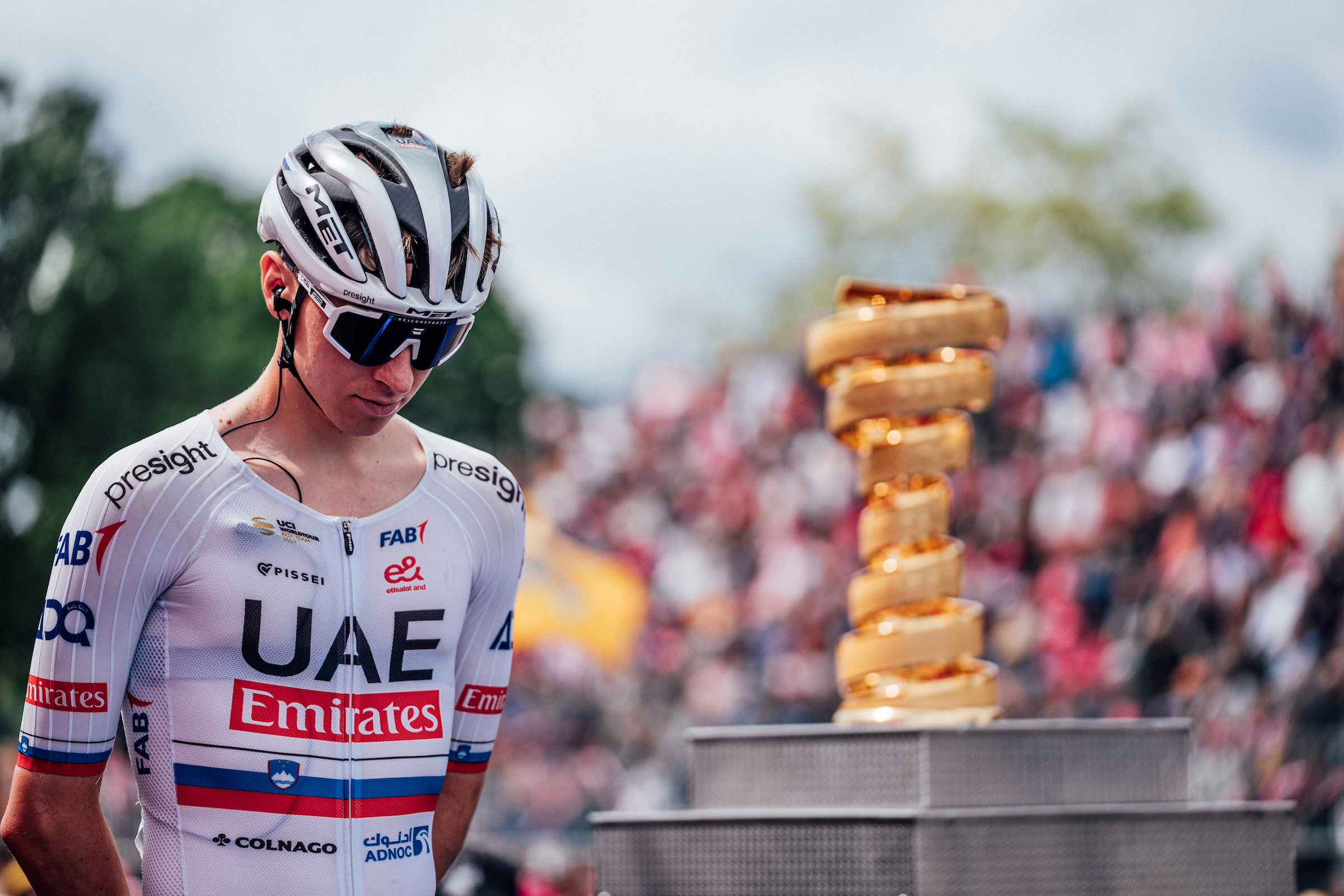
“Have you ever seen anything like this?” cycling great-turned-pundit Sean Kelly was asked during a broadcast of the Giro d’Italia this May, as Tadej Pogačar turned in yet another devastating mountain performance en route to the biggest time gap between winner and runner-up in the Giro in nearly 60 years.
Kelly, never a man to use several words where one is enough, answered simply: “No.”
You could hardly disagree. The degree of domination shown by Pogačar in this year’s Giro d’Italia bears few comparisons in modern-day cycling. “Anybody who thinks they are going to beat him is dreaming,” Red Bull-Bora-Hansgrohe team manager Rolf Aldag told Cyclingnews - and that was when the Giro had barely begun.
Three weeks later and all the predictions had been fulfilled. The Giro d’Italia is famous for being the Grand Tour of perpetual uncertainty, the race where that tired old cliché that nothing is won until everything is won and the last finish line is finally crossed actually tends to bear true. Just ask Primož Roglič (Bora-Hansgrohe) and Geraint Thomas (Ineos Grenadiers) about 2023 and what happened in the rollercoaster final time trial, for example.
But in the case of Tadej Pogačar, the chronicle of a 2024 Giro d’Italia victory foretold remained up there in lights for three long weeks, defying rivals, rough third week weather, the Mortirolo and the Monte Grappa and even stage 21’s absurdly technical and hazardous finishing circuit in Rome. (Now there was a chance of a last-minute upset waiting to happen if ever you saw one.) There was barely an assault on his overall lead, nothing to warrant a moment of panic or concern. On some mountain stages, it seemed like Pogačar was all but winning without even wanting to do so. With the benefit of hindsight, but also almost everybody's foresight, he was simply unbeatable.
Aldag was far from being the only one to predict Pogačar’s success. As head sports director Joxean Fernández Matxin put it in December at the UAE training camp in Spain, his expectations that Pogačar would do better than in 2023 were high, with the first major stage race target the Giro d’Italia. But as it turned out the Giro was just the latest chapter in a non-stop series of triumphs in 2024, as Pogacar confirmed his UCI title of number 1 rider in the world, again and again.
Yes, there have been some minor errors at times: remember the miscalculation on the opening stage of Catalunya cost Pogacar the chance to lead the race from beginning to end, even if it didn’t stop him winning four stages and the overall? But when Fernández Matxin told Cyclingnews after the Giro d'Italia “It’s been above my most optimistic expectations," really, he could have said the same thing about the whole of 2024 - so far.
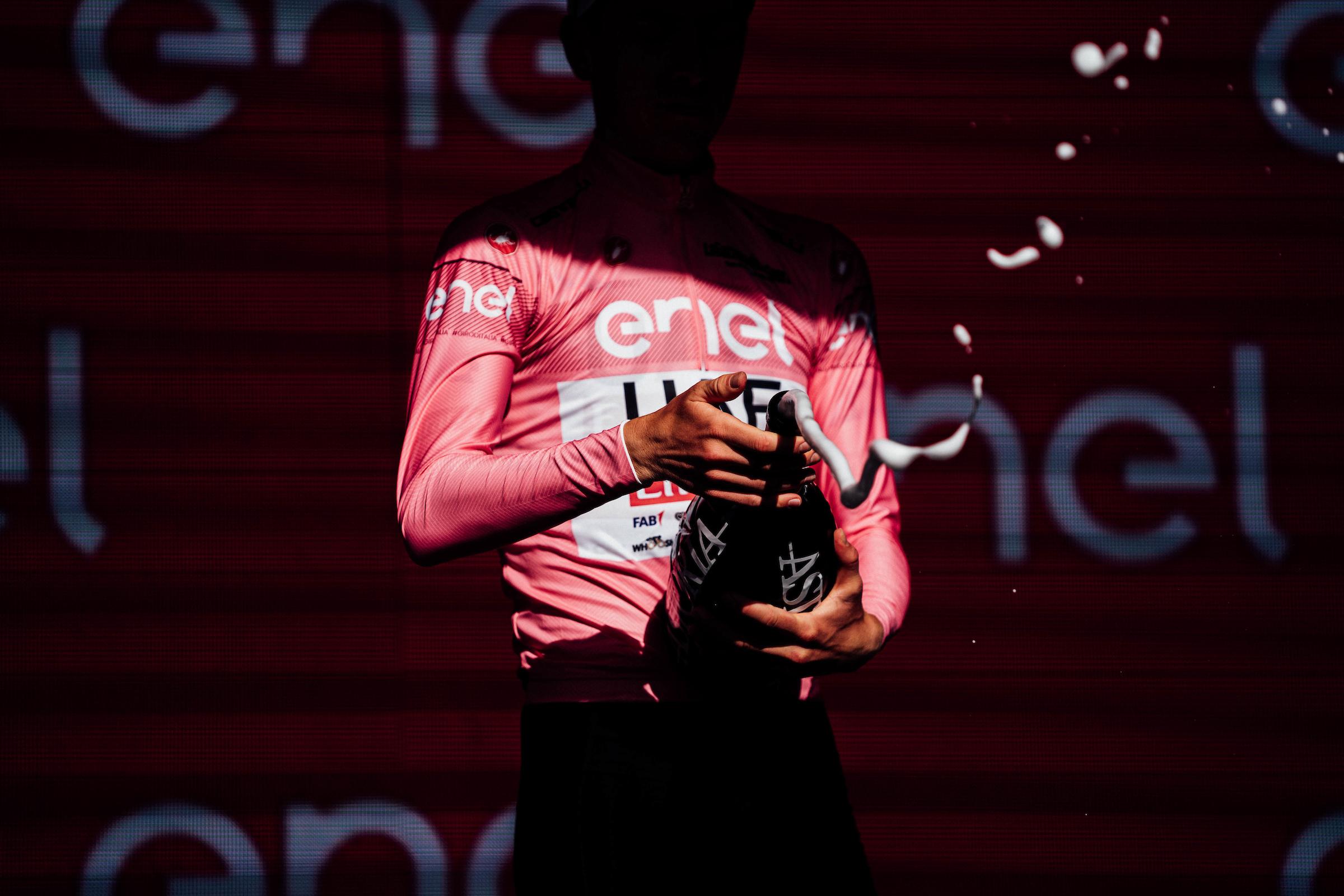
The Jonas Vingegaard challenge
It's blindingly obvious that all of these victories place Tadej Pogačar in the realm of the giants of the sport - if he wasn’t there already. But it’s also always been true the greatest riders operate in a league of their own until, sometimes very abruptly and often through no fault of their own, they don’t.
Falls from the pinnacle of cycling can be so sudden - and memorably so - that back in the 1996 Tour when 1991-1995 overall winner Miguel Indurain began weaving across the road on the ascent of Les Arcs, sister publication Cycling Weekly wrote that a monument should be put up on the side of the road, marking the exact spot where Indurain first cracked. The same end-of-an-era aura surrounds the point on the Pra Loup climb in the Pyrenees where in the 1975 Tour de France, cycling's greatest ever racer, Eddy Merckx, was dropped eventual race winner Bernard Thévenet. To use Pogačar himself as an example, no-one expected him to crack so spectacularly as he did on the Col du Granon two Julys ago, bringing an end to a two-year reign in yellow that plenty of pundits had predicted would last for many times that.
The primary reason to doubt that Pogačar can do the double, in fact, boils down to the same reason that he has lost the two last Tours de France: Jonas Vingegaard. It's perhaps been forgotten that the only comparable time gap to Pogačar's Giro victory margin in recent Grand Tour history happened last July, when Pogačar lost the Tour de France by 7:29 to Vingegaard. (That was the biggest winning gap in the Tour, incidentally, since Vincenzo Nibali crushed the opposition in 2014 by 7:37.)

“We tried to focus on Jonas’ strengths and those are the long climbs,” Mathieu Heijboer, VIngegaard’s team coach told Velonews last year. “If you train a lot for explosivity, you lose length in your duration and the other way around. We had to find the right balance. But we knew the duration was key to beat Pogačar.”
There will be those who - rightly - point out that during the 2023 Tour, Pogačar was still hampered by the knock-on effects of his broken wrist injury in Liege. Equally, the questionmark over Vingegaard’s upper limits in the 2024 season, skewed so badly by the consequences of the Itzulia Basque Country crash, is not a small one.
However, the strategy that was applied so effectively by Visma in the 2023 Tour was also usedin the 2022 Tour, when Pogačar did not have any injuries and also suffered a stinging defeat by Vingegaard. Furthermore, during his long road back from recover Visma-Lease A Bank have insisted that they would only bring Vingegaard at the Tour if he was at the very least competitive. Assuming that’s true, when combined with the scale of his defeats on the Slovenian in 2022 and 2023, it's all but certain the Dane will be in a position to try and challenge Pogačar, at the very least. And perhaps do a lot more.
This in turn is why it is wrong to read too much into the Giro d’Italia results and the scale of Pogačar’s victory and UAE were at pains to point that out during the race. In fact, when in the third week Visma-Lease A Bike director Richard Plugge was not slow to point out to Cyclingnews that Pogačar’s true level would be impossible to gauge until the much tougher competition in July, UAE were - to their credit - the first to agree.
“In cycling today, you have a Big Six of riders – Vingegaard, Roglič, Tadej and Evenepoel, as well as Van der Poel and Van Aert – who are on another level," Fernandez Matxin told Cyclingnews in Rome. "So in this Giro, you saw that there is a big difference between a race when they’re present and when they’re not.”
But if Pogačar faces much greater challenges in terms of the opposition - because quite apart from Vingegaard, Roglic and Evenepoel are also present in France, along with a host of other rivals - there’s also another big incognito: the extent of his own physical limitations.
Tackling two Grand Tours in a single season is something Pogačar has never done before, and he will obviously take encouragement from riders like Sepp Kuss have proved as recently in 2023 it is possible to do not just two Grand Tours but three in top condition and even win one of them. But for all the Tour is the most familiar of the three forPogačar, with 2024 his fifth consecutive start in the race, when the starting flag drops in Firenze, the UAE leader is heading into unknown territory.
That lack of reference points even counts for a rider whose capacity for recovery and assimilating efforts is so exceptional his team coach Javier Sola insisted to Cyclingnews that “he’s basically been touched with a magic wand." Doing the Giro and Tour double puts Pogačar into a sporting arena where he is pushing himself to new physical and psychological extremes. Hence the intrinsic appeal of trying for the double, of course: but also its risks.
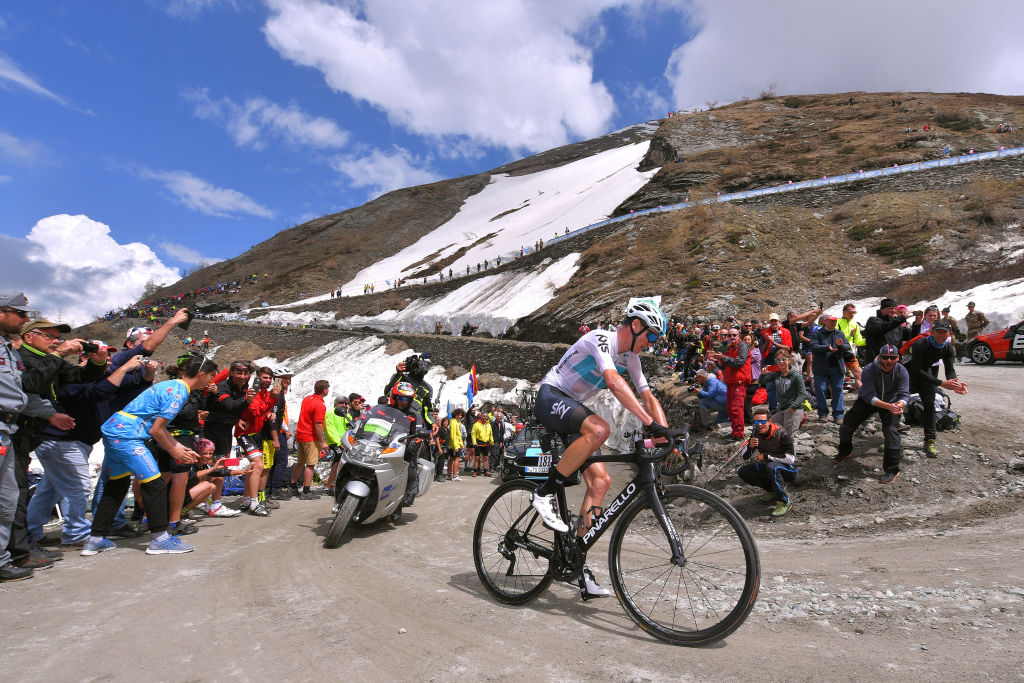
Starting from a high point
Yet the reason why UAE Team Emirates can be so optimistic about Pogačar’s chances is perhaps not so much in the degree of domination he showed in the Giro d’Italia, as the overwhelming sense that their team leader was not having to push himself too deep to attain it. The precise degree of exhaustion which Pogačar reached on completing the Giro is, logically, not going to be public information, at least until after the Tour de France. But UAE and Pogačar made no secret of the fact that he was using the time trials as a test ground for the Tour’s crucial races against the clock - and his knock-out victory in the first, in particular, left little room for doubt that it was a test he passed with flying colours. Yet for all there were setpiece battles to fight, to judge from the way he looked in the Giro’s toughest third week on the hardest climbs when he did attack, in the final days of the race Pogačar was nowhere near running on fumes.
This is far easier said than done. Think back to the 2018 Giro d’Italia winner, Chris Froome, say, who went on to try for the double in the Tour de France after suffering numerous crashes in Italy and having to dig deep in a brutally hard third week. Or Alberto Contador, who has repeatedly said the lack of a strong team in the 2015 Giro allowed his rivals to wear him out for the Tour. Pogačar is yet to reach such illustrious levels in Grand Tours as either Contador or Froome. But he had such a huge advantage time-wise, as well as a strong enough team, that meant he could race the final third of the Giro relatively conservatively - and that will likely pay dividends in the Tour.
Starting a recovery process from a much higher point than other Grand Tour champions obviously can only be beneficial when it comes to the speed of hitting top form again. But so, too, will avoiding illnesses or injuries in the Giro, too. But the other crucial element is that not only did Pogačar compete far less in the spring to ensure he came to the Tour over-raced, between the Giro and Tour -and unlike Contador, say, in 2015 - he has not competed at all. Maximum rest should, on paper, guarantee Pogačar a maximum chance of success.
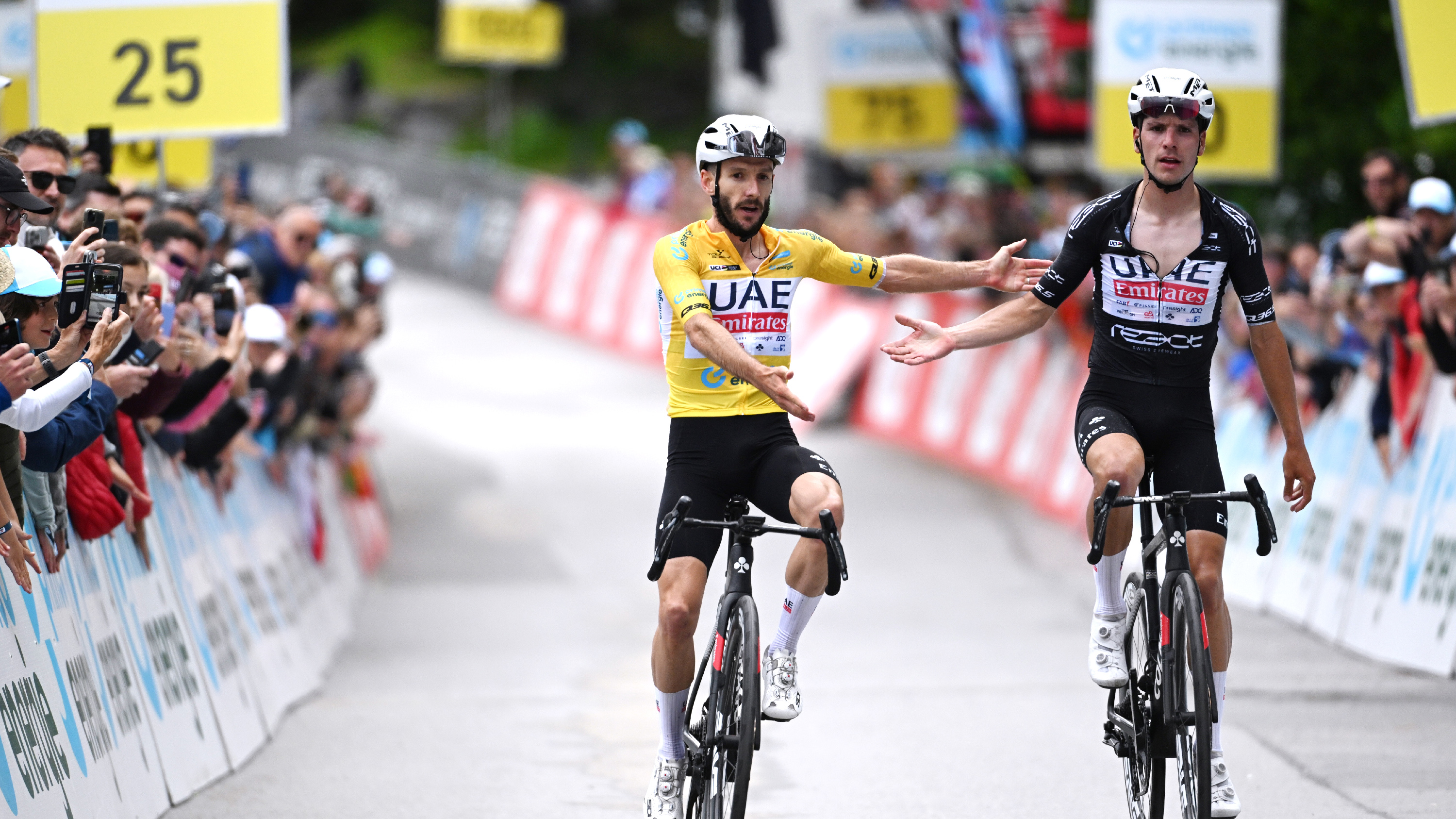
Strength in numbers
There are yet more reasons for Pogačar to be optimistic, with far less to do with him directly. While he has been resting up and at altitude, Pogačar’s Tour de France teammates have been busy creating their own remarkable success stories.
The Critérium du Dauphiné failed to see UAE shining overly brightly as Juan Ayuso crashed out injured and Marc Soler’s brave solo attacks were reeled in close to the line. But the Tour de Suisse was a very different story. Adam Yates and Joao Almeida were as untouchable in the high mountains as Pogačar himself had been in the Giro, claiming no less than four 1-2 finishes, including the final time trial, as well as clinching the top two spots overall.
A double assault on the Tour de France podium with Yates, as happened in the 2023 Tour, or perhaps Almeida, a Giro top-three finisher back in 2023 himself as well, might now not be out of the question. But either way, as 1992 and 1993 Giro-Tour champion Miguel Indurain told Cyclingnews earlier this year when discussing Pogačar's double, “If you are racing both Grand Tours, you have to be careful how to manage your energy, and team support will be critical too, even though he [Pogačar] clearly likes making solo moves.” In this case, given what Almeida and Yates could achieve in the race often rated as cycling's fourth Grand Tour, Pogačar looks like he is in very safe hands indeed.
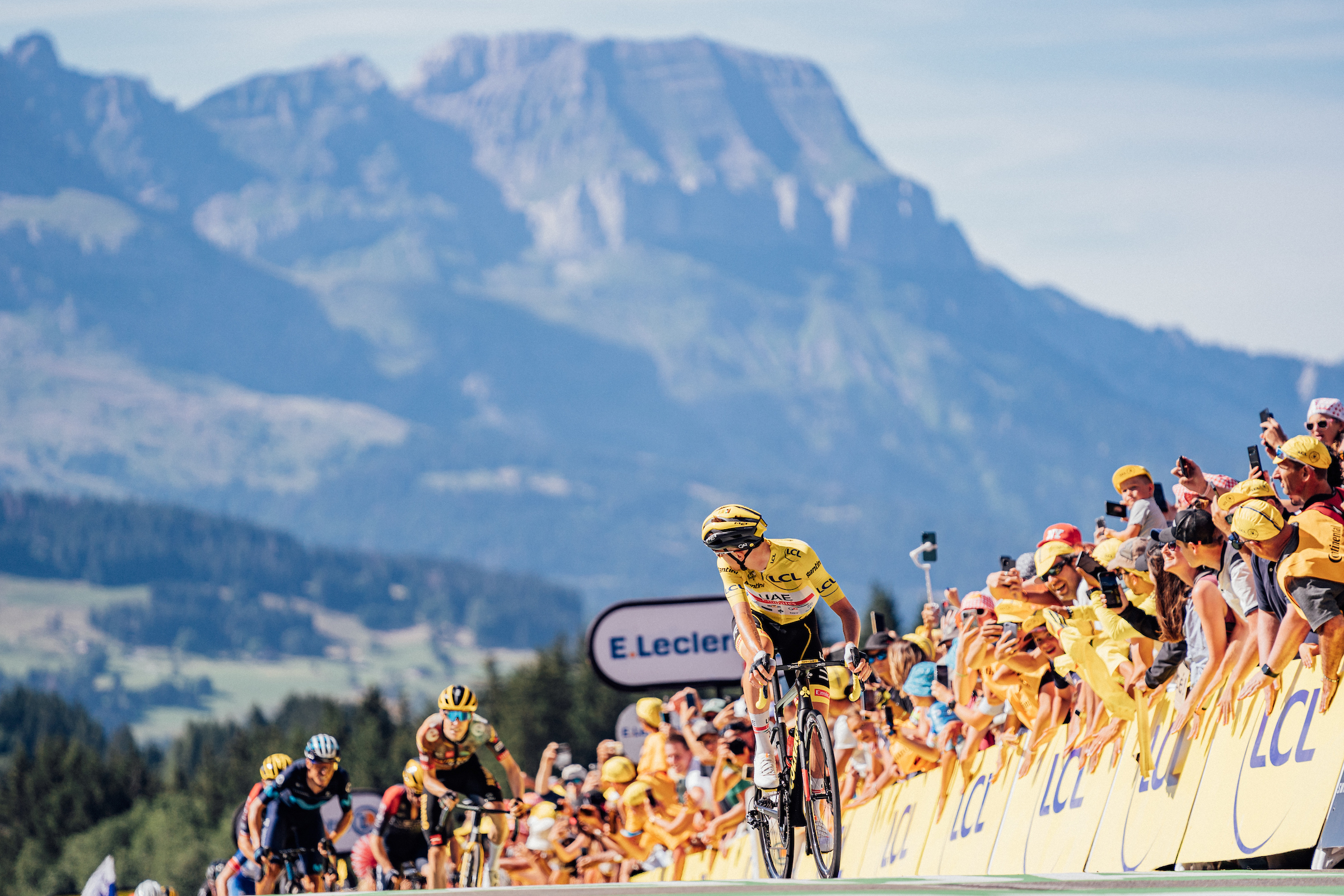
Possibly the most important element in Pogačar’s favour though is a psychological one: momentum. Unlike Vingegaard, who will be starting the Tour almost as if he is starting his entire 2024 season, the Slovenian comes into the Tour de France with a faultless first half of the year already in his favour. Failing to win the Tour for a third time in a row with such a superb build-up only adds to the pressure in one sense. But in another, he is already enjoying a season that most riders would happily give their right hands for to achieve.
So the 2024 Tour de France is not Pogačar’s to lose, by any stretch of the imagination - doing the double, and taking on Vingegaard, is far too hard a challenge for that. But no matter how difficult it is to become the first male rider to win two Grand Tours back-to-back in nearly three decades, he will likely never reach the Tour de France with such a good opportunity to do so, either. Quite how far Pogačar’s notable momentum will carry him, though, only the next three weeks will reveal.
Get unlimited access to all of our coverage of the Tour de France - including journalists reporting, breaking news and analysis on the ground from every stage of the race as it happens and more. Find out more.







